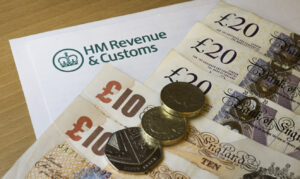5 Little-Known UK Tax Tips Every Small Business Owner Should Know to Maximise Savings
Running a small business in the UK? Sorting out your taxes can feel like navigating a maze, but don’t worry—there are plenty of ways to get tax return help and save some cash. Here are 5 best tax saving tips that can help small business owners maximise their savings and streamline tax process.
1. Claim Your Home Office Tax Deduction
If you’re working from home, you could be missing out on valuable savings if you’re not claiming your home office expenses. You can deduct a portion of your household costs like rent, mortgage interest, council tax, and utilities on your self-assessment tax return.
Here’s how it works: If your home has five rooms and you use one for business, you can claim one-fifth of your expenses as a deduction. But remember to keep personal use for each room to maintain your Capital Gains Tax (CGT) exemption.
Need help with your home office claim? Our team of self-assessment accountants can walk you through the process!
2. Family Tax Savings: Involve Your Kids in the Business
Looking for a smart way to reduce your National Insurance bill? If your child is 21 or over, you can bring them into your business as a partner. This can be more tax-efficient than paying them a salary, but make sure they’re actively involved. HMRC scrutinizes these setups, so it’s important to have a legitimate business reason.
This trick works wonders for reducing your employer’s National Insurance while keeping the business in the family.
3. Know Your Employer’s National Insurance
When hiring, it’s important to consider Employer’s National Insurance contributions. For the 2023/24 tax year, you’ll pay 13.8% on earnings over £9,100.
There’s some good news though! Employers don’t have to pay National Insurance for employees under 21, or apprentices under 25 earning less than £50,000. Plus, many businesses can benefit from the £5,000 Employment Allowance.
Looking for more information? Our UK tax accountants can explain how to optimise your employment costs.
4. Deduct Business Travel and Entertainment
Business-related travel and client entertainment can be deductible, but you’ll need to tread carefully to avoid penalties from HMRC. Keep your receipts and make sure these expenses are business-related to stay compliant. Not sure what qualifies as deductible? A tax adviser can help you navigate these rules.
5. Plan Ahead for Capital Gains Tax (CGT)
If you’re selling assets like property or business investments, Capital Gains Tax will likely apply. Timing and planning are critical for minimizing your CGT liability. There are several strategies available, such as using your tax-free allowance or reinvesting profits into other ventures.
Own rental property? CGT can be particularly complicated here, so seeking property tax advice from a professional is always a good idea.
Final Thoughts: Maximise Your Company Tax Savings!

Navigating UK tax laws is challenging, but taking advantage of the right deductions and allowances can help you save significantly. Whether it’s filing self-employed tax returns, handling property taxes, or minimizing capital gains tax, these 5 best tax tips can help reduce your overall tax burden. For a deeper dive into small business tax strategies for the coming year, check out this blog.
PS: Need help with your self-assessment tax return? Looking for expert advice on Capital Gains Tax or running a small business? Contact our team of professional tax advisers for personalised, expert tax advice today! We’ve got you covered whether you’re self-employed, a property owner, or a small business owner.
